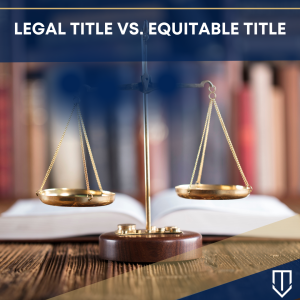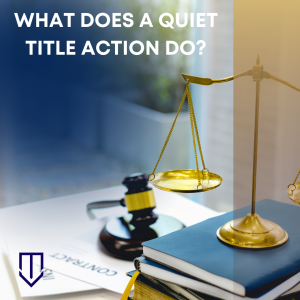 The significance of the differences between legal and equitable title is an outright confusing topic, requiring some knowledge of constructive trusts, beneficial interests, and seller’s liens. That said, the concept can be made digestible by boiling it down to its essential elements. When done, this simplification reveals how often we encounter both types of titles in common real estate transactions.
The significance of the differences between legal and equitable title is an outright confusing topic, requiring some knowledge of constructive trusts, beneficial interests, and seller’s liens. That said, the concept can be made digestible by boiling it down to its essential elements. When done, this simplification reveals how often we encounter both types of titles in common real estate transactions.
At its core, the difference between these titles contains significance only insofar as there are multiple interested parties in the same property. When this is the case, the law creates a legal fiction of sorts, assigning the beneficial use of the property to the “equitable” titleholder and the legal power over the property to the “legal” titleholder.
The explanation is, in reality, much more complex, but the attorneys at Underwood Law are more than familiar with the ins and outs of title disputes and are here to help navigate you through your real estate lawsuit.
 California Partition Law Blog
California Partition Law Blog


 A “quiet title” action is a lawsuit where a property owner seeks to eliminate, establish, resolve, and “quiet” any other claims on the same property by anyone else. Once complete, the lawsuit will result in a perfect title enforceable in the courts. A quiet title action is thus an effective tool to establish and settle ownership over real estate.
A “quiet title” action is a lawsuit where a property owner seeks to eliminate, establish, resolve, and “quiet” any other claims on the same property by anyone else. Once complete, the lawsuit will result in a perfect title enforceable in the courts. A quiet title action is thus an effective tool to establish and settle ownership over real estate.